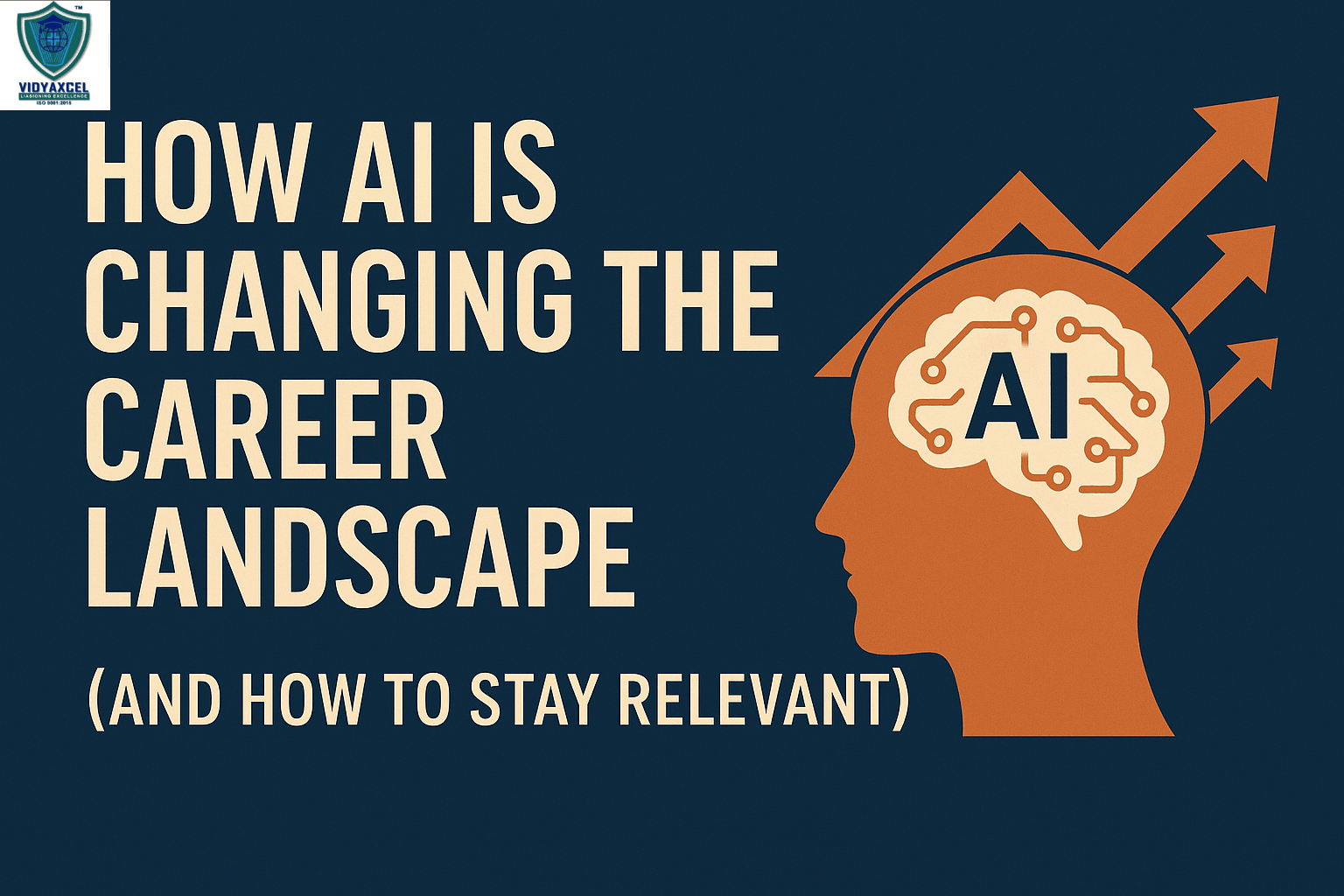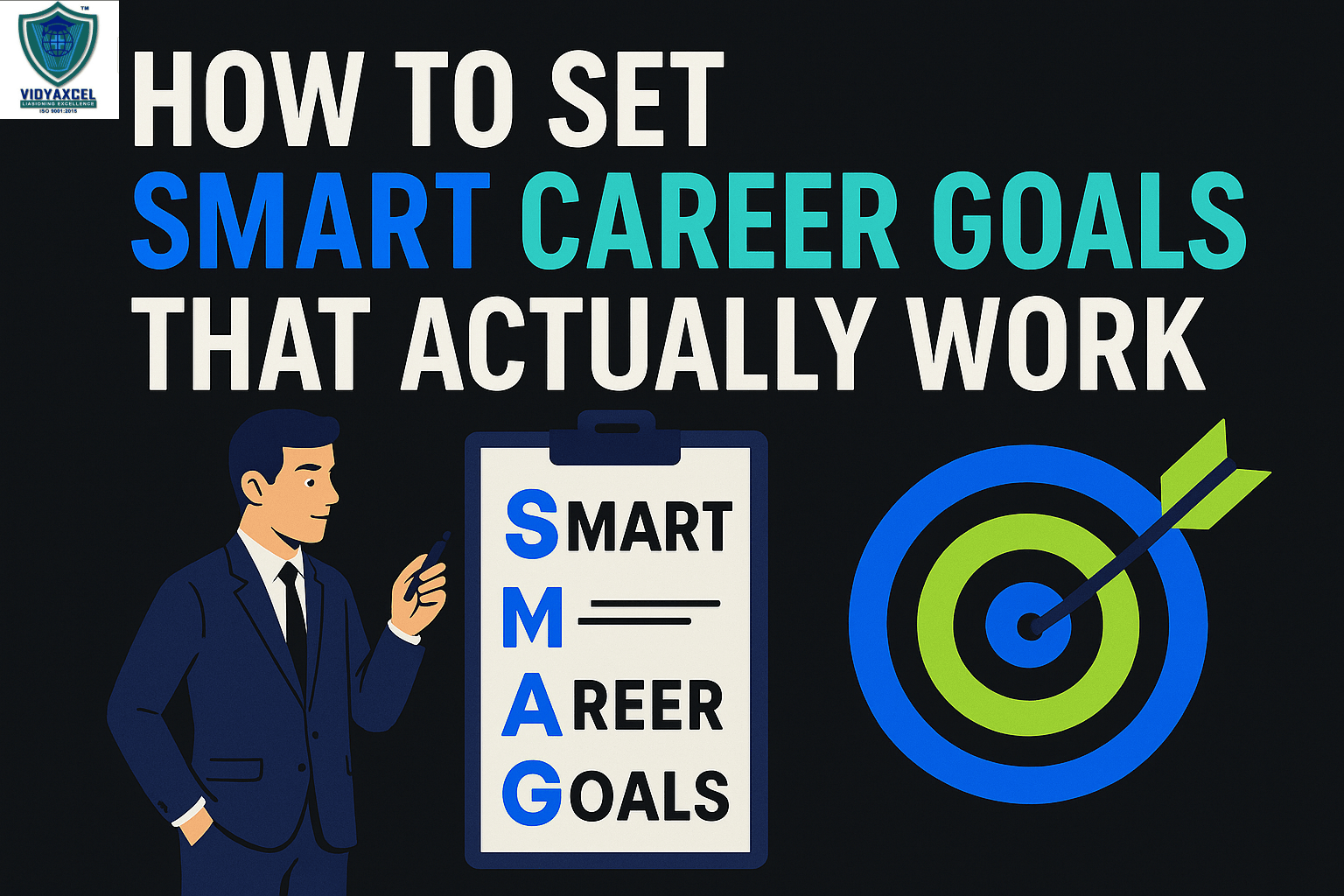Blog Details

06Jun
How AI Is Changing the Career Landscape (And How to Stay Relevant)
Artificial Intelligence (AI) is no longer a futuristic concept; it's a present-day reality that's reshaping industries, job roles, and the skills required to thrive in the workforce. As AI continues to evolve, understanding its impact on careers and learning how to adapt is crucial for professionals, students, and parents guiding their children.
Section 1: The AI Revolution in the Workplace
1.1 Understanding AI's Rapid Advancement
AI technologies, including machine learning, natural language processing, and robotics, are being integrated into various sectors, automating tasks and enhancing efficiency. This integration is leading to significant shifts in job structures and requirements.
1.2 Job Displacement and Creation
While AI is automating routine tasks, leading to the displacement of certain roles, it's also creating new opportunities. For instance, the World Economic Forum's Future of Jobs Report 2025 indicates that while 9 million jobs may be displaced, 11 million new roles could emerge due to AI advancements.
- Section 2: Industries Most Affected by AI
2.1 Sectors Experiencing Transformation
- Manufacturing: Automation of assembly lines and quality control processes.
- Healthcare: AI-driven diagnostics and patient data analysis.
- Finance: Algorithmic trading and fraud detection systems.
- Customer Service: Chatbots and virtual assistants handling inquiries.
2.2 Emerging Fields
New industries and roles are emerging, such as AI ethics, data annotation, and AI system training, providing fresh career paths for the workforce.
- Section 3: Skills in Demand in the AI Era
3.1 Technical Skills
- Data Analysis: Ability to interpret and leverage data insights.
- Programming: Proficiency in languages like Python and R.
- AI and Machine Learning: Understanding of algorithms and model training.
3.2 Soft Skills
- Adaptability: Embracing change and learning new technologies.
- Critical Thinking: Analysing situations and making informed decisions.
- Emotional Intelligence: Managing interpersonal relationships judiciously and empathetically.
Chris Hinkle, CEO of TRG Datacentres, emphasizes that skills like conflict resolution, adaptability, leadership, and systems thinking are irreplaceable in the AI-driven workplace.
- Section 4: Strategies to Stay Relevant
4.1 Continuous Learning
Engage in lifelong learning through online courses, workshops, and certifications to keep skills updated.
4.2 Embrace AI Tools
Familiarize yourself with AI tools relevant to your industry to enhance productivity and stay competitive.
4.3 Networking
Connect with professionals in your field to share knowledge and stay informed about industry trends.
4.4 Diversify Skill Set
Combine technical skills with soft skills to become a versatile professional capable of adapting to various roles.
- Section 5: Preparing the Next Generation
5.1 Educational Focus
Encourage studies in STEM (Science, Technology, Engineering, Mathematics) fields to build a strong foundation for AI-related careers. Demis Hassabis, CEO of Google DeepMind, advises students to focus on STEM subjects to grasp AI fundamentals.
5.2 Cultivating Soft Skills
Teach children the importance of creativity, problem-solving, and emotional intelligence, which are essential in an AI-integrated world.
- Section 6: The Role of Organizations
6.1 Employee Training
Companies should invest in training programs to upskill employees, ensuring they can work alongside AI technologies effectively.
6.2 Ethical AI Implementation
Organizations must implement AI responsibly, considering ethical implications and ensuring transparency in AI-driven decisions.
- Section 7: Future Outlook
The integration of AI into the workforce is inevitable, but with proactive adaptation, individuals and organizations can harness its potential for growth and innovation. By focusing on continuous learning, skill diversification, and ethical practices, we can navigate the evolving career landscape successfully.
FAQ’s
Q1: Will AI completely replace human jobs?
While AI will automate certain tasks, it will also create new job opportunities. The key is to adapt by learning new skills and embracing lifelong learning.
Q2: What skills should I focus on to stay relevant?
Focus on both technical skills like data analysis and programming, and soft skills such as adaptability, critical thinking, and emotional intelligence.
Q3: How can I prepare my child for an AI-driven future?
Encourage education in STEM fields and the development of soft skills. Promote curiosity and adaptability to help them navigate future career landscapes.
Q4: Are there industries safe from AI disruption?
Industries requiring human empathy, creativity, and complex decision-making, such as healthcare, education, and the arts, are less likely to be fully automated.
Q5: How can organizations support employees during this transition?
Organizations can offer training programs, promote a culture of continuous learning, and ensure ethical implementation of AI technologies.
Our Office: West Bengal, Maharashtra & Delhi.
For More Infomation about admission in Medical, Engineering, Management & Study in Overseas Details.
View Current Study Overseas, Medical, Engineering & Management Admission Details Video.




